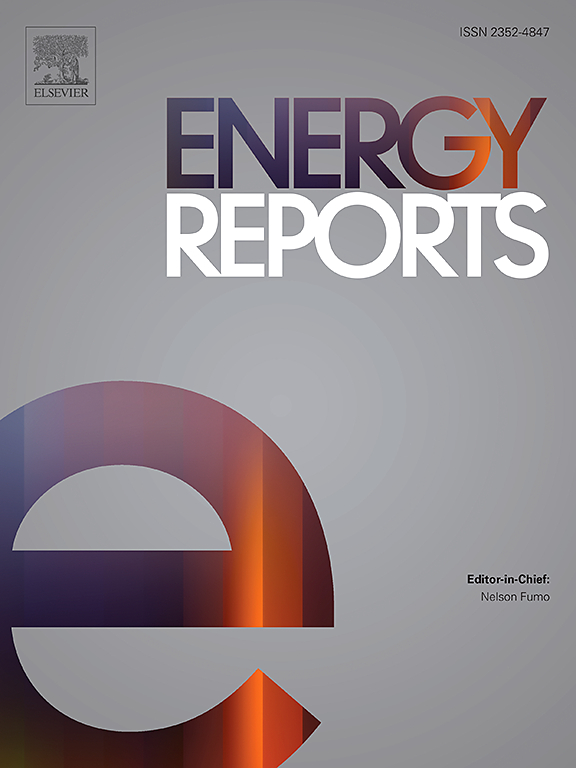基于莲花效应优化算法的智能混合可再生能源系统规模优化
IF 5.1
3区 工程技术
Q2 ENERGY & FUELS
引用次数: 0
摘要
对可持续和具有成本效益的能源解决方案日益增长的需求促使了混合可再生能源系统(HRES)的整合,该系统结合了太阳能、风能和储能技术。本研究利用莲花效应优化算法(Lotus Effect Optimization Algorithm, LEOA)提出了一个优化的HRES尺寸框架,这是一种新颖的自然启发的元启发式方法,以其在解决多目标非线性问题方面的鲁棒性而闻名。研究的重点是最小化平准化能源成本(LCOE),提高系统可靠性,减少对环境的影响。来自沙特阿拉伯卡西姆的现实世界案例研究,提出了验证所提出的方法。结果表明,LEOA算法在收敛速度、求解精度和计算效率方面均优于PSO、GA、SA和MOPSO等传统算法。该算法实现了最低的LCOE(0.275美元/千瓦时)、最高的可再生能源渗透率(85%)和最大的二氧化碳减排(40%)。这些发现突出了所提出的算法在设计成本效益高、可靠和环境可持续的HRES配置方面的有效性,使其成为未来智能电网应用的有前途的工具。本文章由计算机程序翻译,如有差异,请以英文原文为准。
Optimal sizing of smart hybrid renewable energy system using Lotus Effect Optimization Algorithm
The increasing demand for sustainable and cost-effective energy solutions has prompted the integration of Hybrid Renewable Energy Systems (HRES), which combine solar, wind, and storage technologies. This study proposes an optimized HRES sizing framework utilizing the Lotus Effect Optimization Algorithm (LEOA), a novel nature-inspired metaheuristic approach known for its robust performance in solving multiobjective nonlinear problems. Research focuses on minimizing the Levelized Cost of Energy (LCOE), enhancing system reliability, and reducing environmental impact. A real-world case study from Qassim, Saudi Arabia, is presented to validate the proposed method. The results show that LEOA outperforms conventional algorithms, including PSO, GA, SA, and MOPSO, in terms of convergence speed, solution accuracy, and computational efficiency. The proposed algorithm achieved the lowest LCOE ($0.275/kWh), the highest penetration of renewable energy (85%) and the maximum reduction of emissions (40%). These findings highlight the effectiveness of the proposed algorithm in the design of cost-effective, reliable, and environmentally sustainable HRES configurations, making it a promising tool for future smart grid applications.
求助全文
通过发布文献求助,成功后即可免费获取论文全文。
去求助
来源期刊

Energy Reports
Energy-General Energy
CiteScore
8.20
自引率
13.50%
发文量
2608
审稿时长
38 days
期刊介绍:
Energy Reports is a new online multidisciplinary open access journal which focuses on publishing new research in the area of Energy with a rapid review and publication time. Energy Reports will be open to direct submissions and also to submissions from other Elsevier Energy journals, whose Editors have determined that Energy Reports would be a better fit.
 求助内容:
求助内容: 应助结果提醒方式:
应助结果提醒方式:


